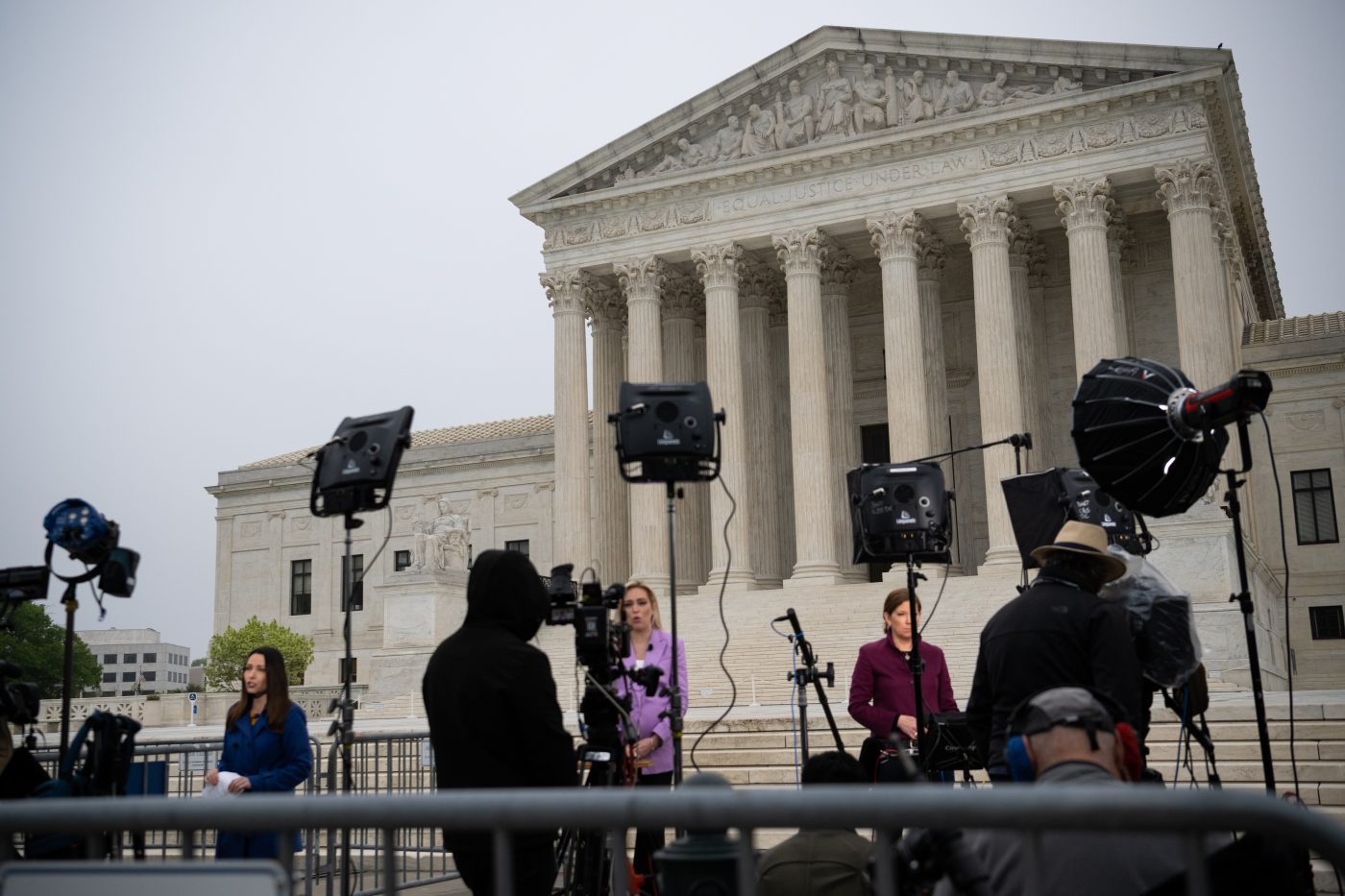It has become Washington’s most controversial and go-to Internet content policy — jawboning. Through informal contacts, the US government pushes social media companies to take down “dangerous” content such as anti-vaccine tirades or extremist propaganda.
Jawboning is now at the center of a raging debate over how to regulate the Internet. In Missouri v. Biden, the states of Missouri and Louisiana argue that the government’s requests for removals amount to censorship. A US federal court has agreed. But the Supreme Court paused the ruling and has agreed to take the case, allowing Biden administration officials to continue putting pressure on social media companies.
Regulating online speech represents a long-running, fundamental issue in Internet policy. At the Internet’s inception, the US and Europe agreed to limit liability for user content. Section 230 of the US Communications Decency Act and Europe’s e-Commerce Directive held that platforms should not be held responsible for preventing illegal content from being posted online, only that they should promptly act to remove it once notified.
In recent years, though, this transatlantic consensus has frayed. The EU’s new Digital Services Act came into operation this year, and the European Commission is already investigating a deluge of disinformation and hateful content on social media about the war between Israel and Hamas. Significant fines could follow.
At the same time, the US has failed to come up with new content moderation rules. The First Amendment protecting free speech represents one obstacle. Another is Washington’s political paralysis: while Democrats support strong content moderation policies to prevent disinformation, Republicans fear that tech platforms censor their speech. Both parties fear stymieing innovation.
The Supreme Court has failed to break this deadlock. In a case involving Google, the court last year rejected efforts to limit Section 230, and in a separate case involving Twitter, the court ruled unanimously that terrorist victims could not hold social media companies liable. The court recently agreed to hear appeals on whether the Constitution allows Florida and Texas to prevent large social media companies from removing posts based on the views they express.
Without clear legal guidelines, Washington has turned to jawboning, leveraging moral suasion when no clear way exists to act. The term comes from the donkey jaw Samson wielded to slay a thousand Philistines, as illustrated in this painting by Guido Reni from 1616.
US jawboning has become extensive. In an article titled “Jawboned,” former Meta public policy officials Katie Harbath and Matt Perault describe “incessant” attempts by government officials to influence them. During the period after 2016 when social media was blamed for election disinformation, US government jawboning, both implicit and explicit, expanded beyond attempts to curtail Covid disinformation to what Harbath and Perault call the censorship of political speech, including demands to take down fake videos of former Speaker of the House Nancy Pelosi.
The growing transatlantic disconnect poses challenges for both Europeans and Americans. In the EU, regulation comes fast and prevents companies from innovating. Europe’s much-touted DSA poses specific enforcement challenges. Its text makes repeated reference to “illegal content,” “misinformation” (or “disinformation”) and “societal risk.” Regulators face a tricky job of defining and explaining these terms.
NGOs have warned against turning the DSA into a political tool, complaining to European Commissioner Thierry Breton. “While we are alarmed by the potential non-compliance of Meta and, in particular, X with the DSA,” the NGOs warned that “we are concerned about the interpretation of the law.” Breton has suggested that EU law could be used to block platforms during protests.
The US approach looks just as dangerous and dysfunctional. Social media spreads disinformation, everything from electoral manipulation to Holocaust denial. Internet companies need clear rules about how they moderate and minimize it. The government should try to protect its citizens. Jawboning qualifies, at least as “doing something.”
But jawboning represents a band-aid. Structural treatment is required.
Balancing free expression with responsible expression represents a complex balancing act. No simple solution exists. We are condemned to move forward by trial and error.
Enrique Dans is a Professor of Innovation at IE University (Madrid) and a Non-resident Fellow with the Digital Innovation Initiative at the Center for European Policy Analysis.
Bandwidth is CEPA’s online journal dedicated to advancing transatlantic cooperation on tech policy. All opinions are those of the author and do not necessarily represent the position or views of the institutions they represent or the Center for European Policy Analysis.





